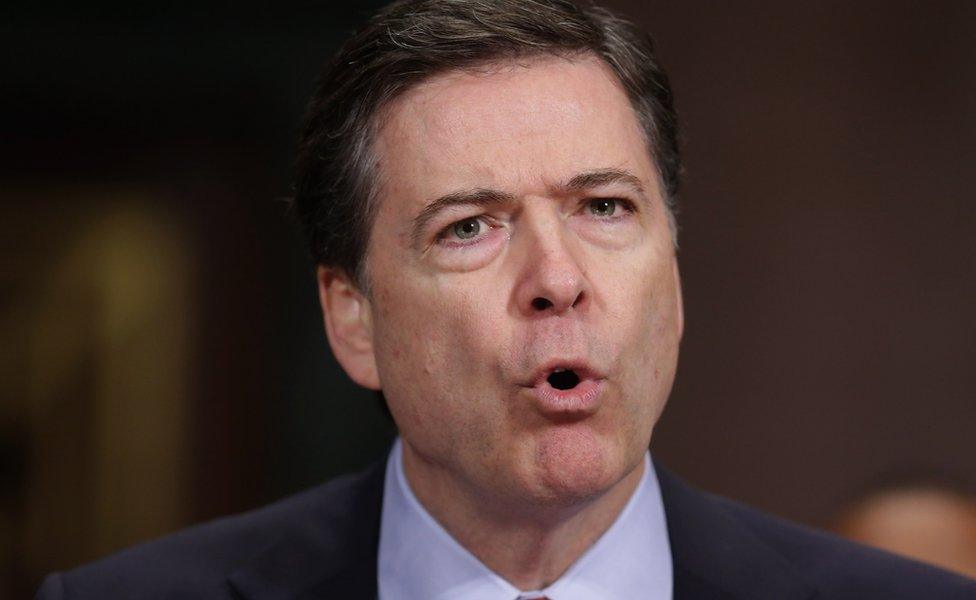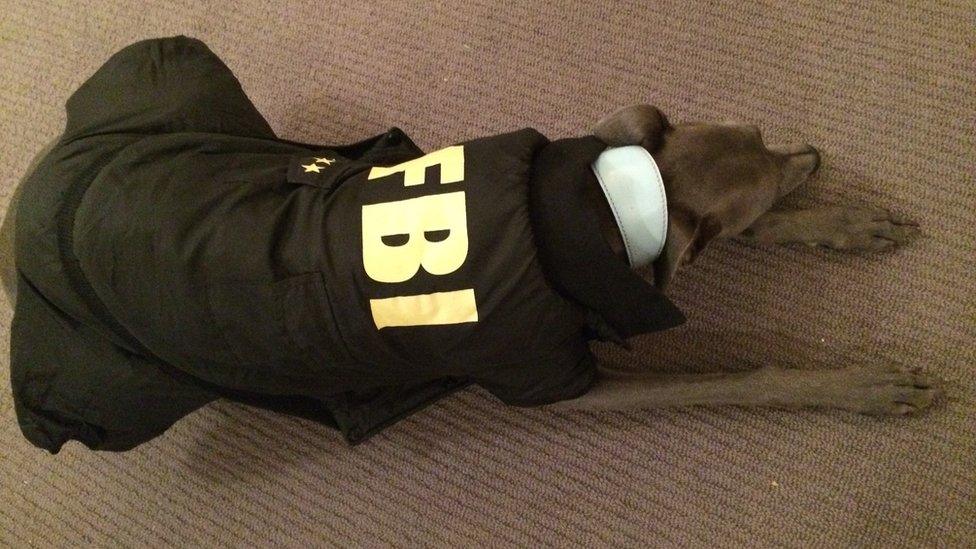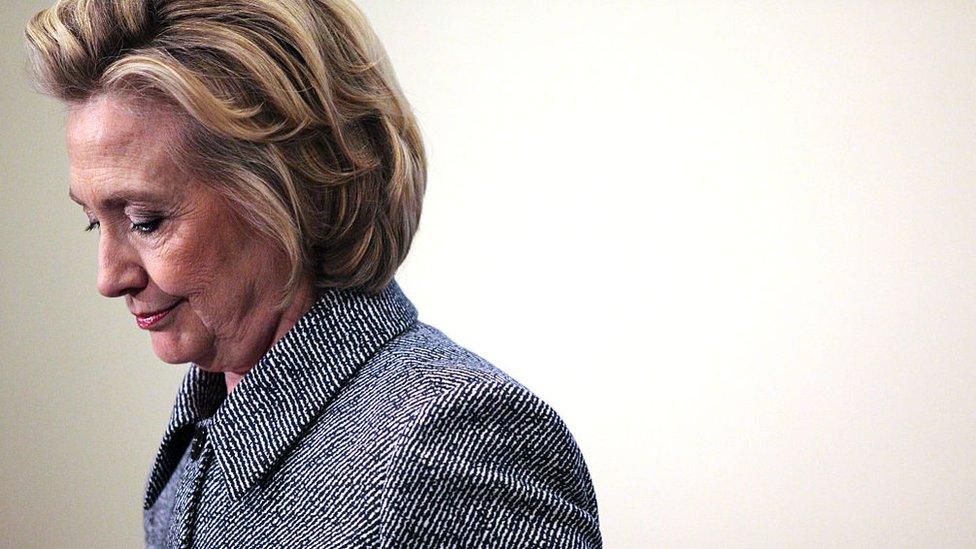The FBI man who 'doesn’t give a hoot about politics'
- Published

The poor dog seems to end up with the FBI costume every Halloween. But this year it somehow seems a bit more apposite - although try getting a hound interested in an email scent and you'll be there a long time.
In the US, Democrats are queuing up to condemn the politicisation of one James Comey, the FBI Director who once declared he didn't "give a hoot about politics", external. But he has now become embroiled in the most stinking political row - and what's curious is that Republicans are starting to question his actions now too.
To be fair, they are not calling Comey partisan - there is no suggestion here that he is favouring a Trump outcome over a Clinton one.
But to suggest that you can wade in - on what appears to be fairly scant evidence - (see this satirized letter of his own letter to employees, external) just ten days before the most toxic election of our times, and not end up carrying the burden of its outcome somewhere on your shoulders is, at best, naive.

Harry Reid, the avuncular senate minority leader close to retirement, went further than any other legislator has gone in his condemnation. He criticised not only Comey's judgment and principles - accusing him of serious error and of potentially breaking the law - but also called on him to release what he said he knew about Trump's connections to Putin.
Of course it is hard for those with Clinton not to see the timing of this as absurdly political. And they well remember that last time Comey held court with the media back in July, he accused her very publicly of "carelessness"- even though he found nothing to prosecute. The email scandal has provided the spine for Donald Trump's narrative - and most catchy convention slogan "Lock her Up". There's no way Comey didn't realise the effect it could have.
Perhaps we could argue that Comey had no choice: failure to revisit the investigation would have been pounced on by the other side - the Trumpistas, who would have called it a cover up. As soon as he knew anything, in other words, he had to say something.
So yes, an ugly rock and an ugly hard place. Comey explained on Monday that he decided the ramifications for not telling Congress outweighed the move to go against department policy - even though he had to ignore advice from the attorney general to do so.

Ironically, if Clinton does get elected, and evidence is then found against her, she won't be impeached. You can't impeach a president for actions conducted before the term of office. In other words, this won't decide the future of the next president after the election. Which makes the timing, in some ways, even more pertinent.
What does make sense is the theory Republican pollster Frank Luntz suggested to me late on Friday night when he came to the Newsnight studio, external to chat about the repercussions. He said he thought what had emerged was the tip of the iceberg, that essentially Comey knew more than he could let on - and that the worse was still to come.
If that turns out to be true, then you have to accept Comey had no choice. To leave it later would make it worse. The election is a week away. And if he does know more, who's to say next time it won't be about Trump and Russia, as Harry Reid would have it.
Will they still call him political then?
Emily Maitlis is presenting BBC Newsnight's coverage on the US presidential election. You can follow her on Twitter here, external, and watch more of her reports here., external